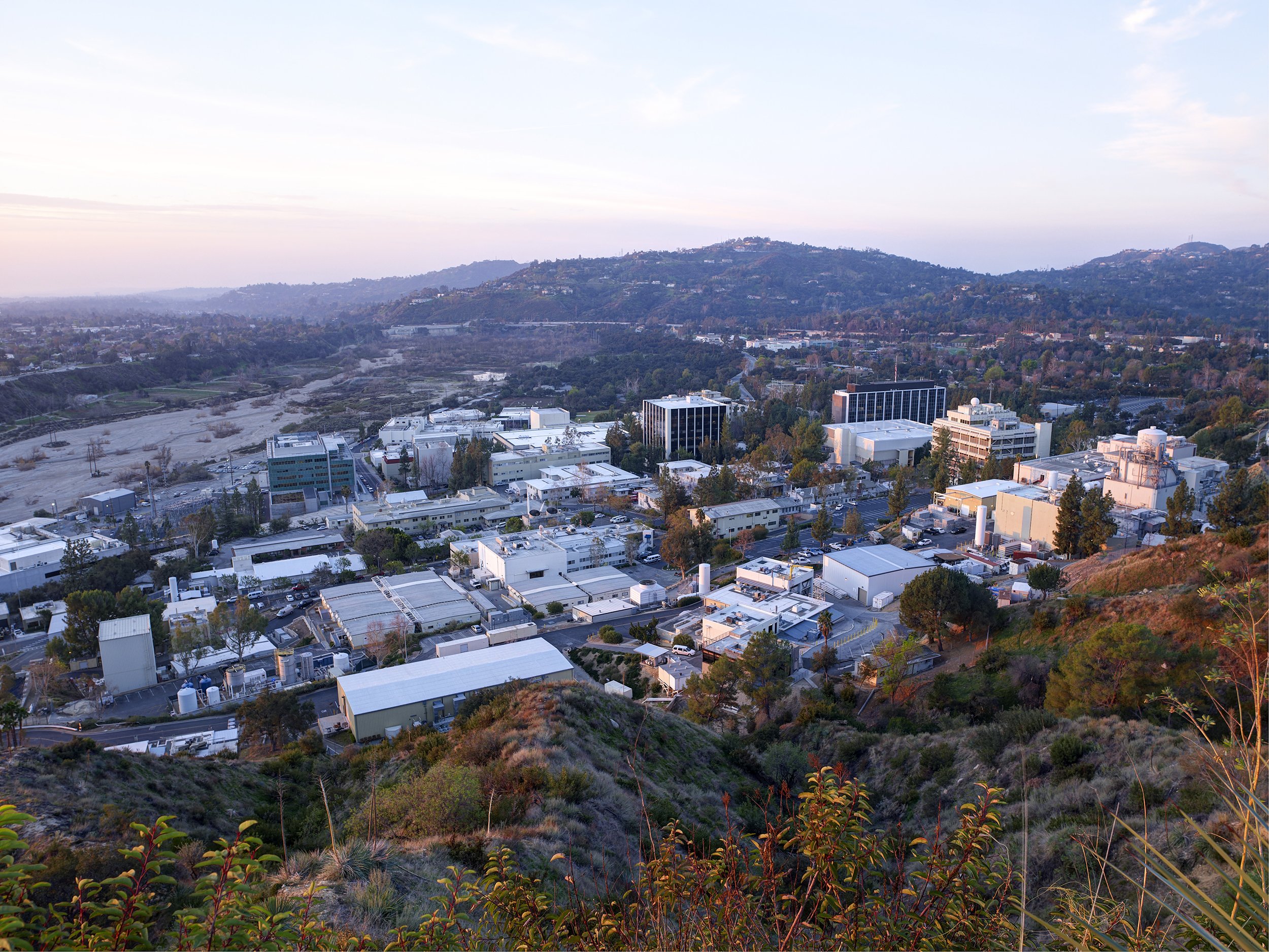NASA Jet Propulsion Lab, Phase I & II
Verified Annual Savings: $1.2MM and 44,000 MBTU
Project Highlights
Water Savings of 18 Million Gal./year
Upgrades in 128 Buildings including Laboratories and Manufacturing Facilities
Secured $700,000 in utility incentives
Energy Conservation Measures
DDC Upgrades and VAV Conversions
Daylighting and occupancy controls
Spectrally enhanced lighting
Water infrastructure upgrades
Irrigation infrastructure and controls upgrades
Xeriscaping
RO water treatment plant upgrades
Chiller/boiler replacement and right-sizing
Building envelope and window film improvements
Rooftop solar PV system
Project Overview: CEG completed two phases of energy upgrades at NASA Jet Propulsion Laboratory (operated by California Institute of Technology) under the U.S. Department of Energy’s Energy Savings Performance Contract. This comprehensive ESPC project involved a wide array of ECMs to drive deeper savings and improve overall building performance for 128 occupied, operationally dependent mission critical facilities.
The NASA Jet Propulsion Laboratory (JPL) campus includes more than 150 facilities, some constructed as early as 1945. Many of the facilities host 24/7, mission critical operations that could not be disrupted at any time during the project. Over 5,000 employees and contractors occupy the facility daily.
Solution: CEG used whole building analyses to target the most beneficial HVAC upgrades, including building-specific reset schedules and variable flow control upgrades. These upgrades reduced the load of the central utility plants by 30%. Upgrades to the central utility plants included the installation of high-efficiency magnetic-bearing chillers, replacement of electric motors and installation of VFDs, installation of a high-efficiency condensing boiler, and implementation of temperature reset schedules.
The project required CEG to perform upgrades to MEP systems serving mission critical data centers and laboratories. CEG worked closely with JPL staff to provide temporary chillers and generators in situations where temporary disruptions or plant outages would have disrupted critical operations.
Results: The $36MM project was named the National Energy Project of the Year (2016) by the Association of Energy Engineers and was awarded a 2016 Federal Energy and Water Management Award by the U.S. Department of Energy for its innovative and highly impactful ECMs. Due to Phase II success, NASA subsequently awarded CEG a Phase III data center-specific project.





